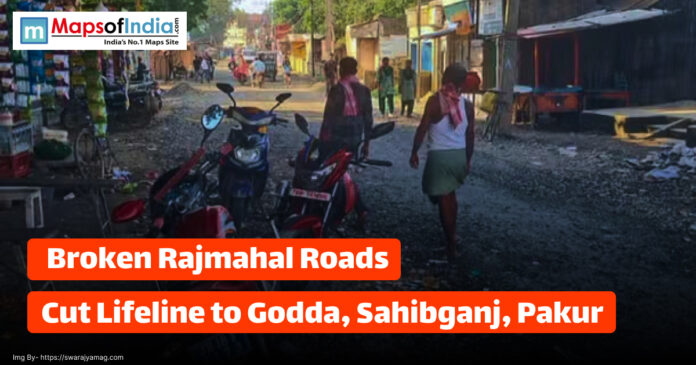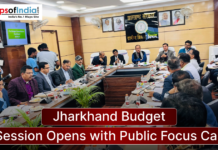What used to be an important road connecting the districts of Sahibganj, Pakur, and Godda is now a nightmare of craters, dust clouds and peril. The roads linked with the Rajmahal coal project, where mostly coal hauling trucks travel, are in such a pathetic condition that even ambulances can not pass through, leading to the loss of lives of thousands of people.
The corridor, which extends out of the urban areas to the rural terrains and tribal belts, is more of a lifeline to the local people and not merely a business connection. It links many villages and towns, which makes it possible to access schools, hospitals and markets. Nevertheless, the road is in a horrible state, and this is clear evidence of the total failure in the maintenance of the infrastructure and administrative control.
Travellers claim that the commute is torture. Potholes are deep and filled with muddy waters during the rain and however, when it is dry, heavy layers of dust are on the whole stretch, and visibility is very low. It is not just that the heavy coal-laden trucks have been eating up the road, but this has also become unsafe and hazardous to smaller vehicles and two-wheelers.
Among the worst cases of worry is that emergency vehicles cannot travel these bad roads. Accounts are also being received that ambulances are getting stalled, and medical treatment is taking hours. There have been instances of patients being obligated to change cars halfway through their trip or being hauled across the wreckage by hand. The outcome: an increasing feeling of fear and helplessness among people who are already living with reduced access to healthcare.
The local drivers and transporters, too, have spoken up and mentioned how minimal traffic control and road safety measures are followed. No signs, no dividers, and even the streetlights don’t work in most areas, complained a local truck driver. When someone falls down or happens to get into an accident, the help comes late, perhaps not at all.
Even school buses and other public transportation are taking a beating. Parents fear every day whether their children are safe since the buses are shaking along the damaged roads. To the farmers, small traders and other people working along the road, the road deterioration will imply lost supplies and higher transportation charges at the expense of already meagre returns.
In spite of persistently urging the local administration and the authorities involved in the project, the problem has remained a huge one. Patchwork temporary measures, when adopted, go away with the first big rain to leave the same gaping holes and broken surface below.
The people of Sahibganj, Pakur and Godda do not demand a luxurious life- these people are demanding security. The message is loud: repair the roads and avoid more loss of lives. There is an obviously blatant act of neglect of the backbone of any development, and the fact that in a place where development is touted and touted so high, there is no maintenance of its most basic infrastructure is a cause of grave concern as far as accountability and governance are concerned.
In the meantime, the people have to cross that dangerous stretch day in and day out, hoping and keeping their fingers crossed, awaiting the change, which might come too late for many people.










